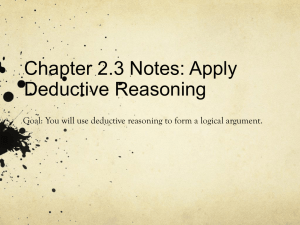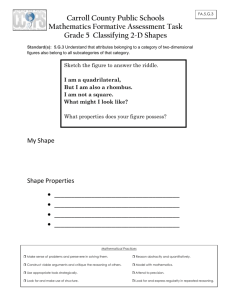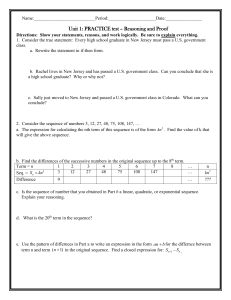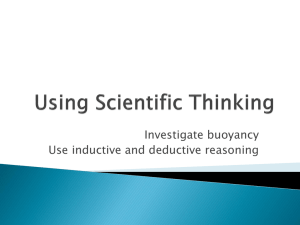inductive deductive reading
advertisement
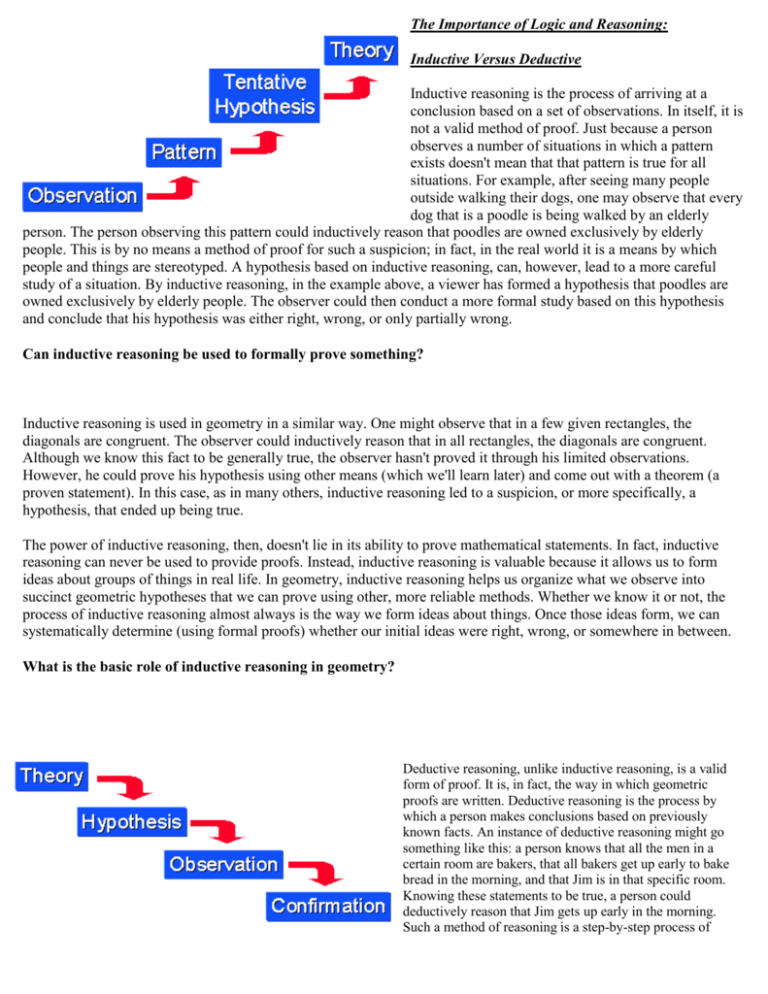
The Importance of Logic and Reasoning: Inductive Versus Deductive Inductive reasoning is the process of arriving at a conclusion based on a set of observations. In itself, it is not a valid method of proof. Just because a person observes a number of situations in which a pattern exists doesn't mean that that pattern is true for all situations. For example, after seeing many people outside walking their dogs, one may observe that every dog that is a poodle is being walked by an elderly person. The person observing this pattern could inductively reason that poodles are owned exclusively by elderly people. This is by no means a method of proof for such a suspicion; in fact, in the real world it is a means by which people and things are stereotyped. A hypothesis based on inductive reasoning, can, however, lead to a more careful study of a situation. By inductive reasoning, in the example above, a viewer has formed a hypothesis that poodles are owned exclusively by elderly people. The observer could then conduct a more formal study based on this hypothesis and conclude that his hypothesis was either right, wrong, or only partially wrong. Can inductive reasoning be used to formally prove something? Inductive reasoning is used in geometry in a similar way. One might observe that in a few given rectangles, the diagonals are congruent. The observer could inductively reason that in all rectangles, the diagonals are congruent. Although we know this fact to be generally true, the observer hasn't proved it through his limited observations. However, he could prove his hypothesis using other means (which we'll learn later) and come out with a theorem (a proven statement). In this case, as in many others, inductive reasoning led to a suspicion, or more specifically, a hypothesis, that ended up being true. The power of inductive reasoning, then, doesn't lie in its ability to prove mathematical statements. In fact, inductive reasoning can never be used to provide proofs. Instead, inductive reasoning is valuable because it allows us to form ideas about groups of things in real life. In geometry, inductive reasoning helps us organize what we observe into succinct geometric hypotheses that we can prove using other, more reliable methods. Whether we know it or not, the process of inductive reasoning almost always is the way we form ideas about things. Once those ideas form, we can systematically determine (using formal proofs) whether our initial ideas were right, wrong, or somewhere in between. What is the basic role of inductive reasoning in geometry? Deductive reasoning, unlike inductive reasoning, is a valid form of proof. It is, in fact, the way in which geometric proofs are written. Deductive reasoning is the process by which a person makes conclusions based on previously known facts. An instance of deductive reasoning might go something like this: a person knows that all the men in a certain room are bakers, that all bakers get up early to bake bread in the morning, and that Jim is in that specific room. Knowing these statements to be true, a person could deductively reason that Jim gets up early in the morning. Such a method of reasoning is a step-by-step process of drawing conclusions based on previously known truths. Usually a general statement is made about an entire class of things, and then one specific example is given. If the example fits into the class of things previously mentioned, then deductive reasoning can be used. Deductive reasoning is the method by which conclusions are drawn in geometric proofs. Deductive reasoning in geometry is much like the situation described above, except it relates to geometric terms. For example, given that a certain quadrilateral is a rectangle, and that all rectangles have equal diagonals, what can you deduce about the diagonals of this specific rectangle? They are equal, of course. This is an example of deductive reasoning in action. Give an example of how deductive reasoning is used and how it is different from inductive reasoning: Although deductive reasoning seems rather simple, it can go wrong in more than one way. When deductive reasoning leads to faulty conclusions, the reason is often that the premises were incorrect. In the example in the previous paragraph, it was logical that the diagonals of the given quadrilateral were equal. What if the quadrilateral wasn't a rectangle, though? Maybe it was actually a parallelogram, or a rhombus. In such a case, the process of deductive reasoning cannot be used. The fact that the diagonals of a rectangle are equal tells us nothing relevant about the diagonals of a parallelogram or a rhombus. The premises used in deductive reasoning are in many ways the most important part of the entire process of deductive reasoning. If they are incorrect, the foundation of the whole line of reasoning is faulty, and nothing can be reliably concluded. Even if just one conclusion is incorrect, every conclusion after that is unreliable, and may very well be incorrect, also. Another instance in which deductive reasoning doesn't work is when it is not executed properly. Using the example in the first paragraph, let's add the premise that Bob is a baker. Can we deduce that Bob is in the room? We could only deduce this if we knew that everybody who was a baker was in the room. This was not one of the premises, though. When reading premises, it is very important not to assume anything more than exactly what is written. In logic Statements we can more carefully examine exactly what occurs when premises are misused and lead to false conclusions. For now, it is enough to know that deductive reasoning is perfectly effective when all of the premises are true, and each step in the process of deductive reasoning follows logically from the previous step. Why does deductive reasoning sometimes go wrong? Problem : Take the following scenario: Every time a batter reaches first base, the next batter hits a double. Every time a batter hits a double, the runner on first scores. Jon reaches first base. What can you deduce about Jon? Problem : Take the following scenario: When the sun shines, the grass grows. When the grass grows, it needs to be cut. The sun shines. What can you deduce about the grass? Problem : Take the following scenario: Jim is a barber. Everybody who gets his hair cut by Jim gets a good haircut. Austin got a good haircut. What can you deduce about Austin? Problem : All dogs are mammals, and all mammals are vertebrates. Shaggy is a dog. What can be deduced about Shaggy?



